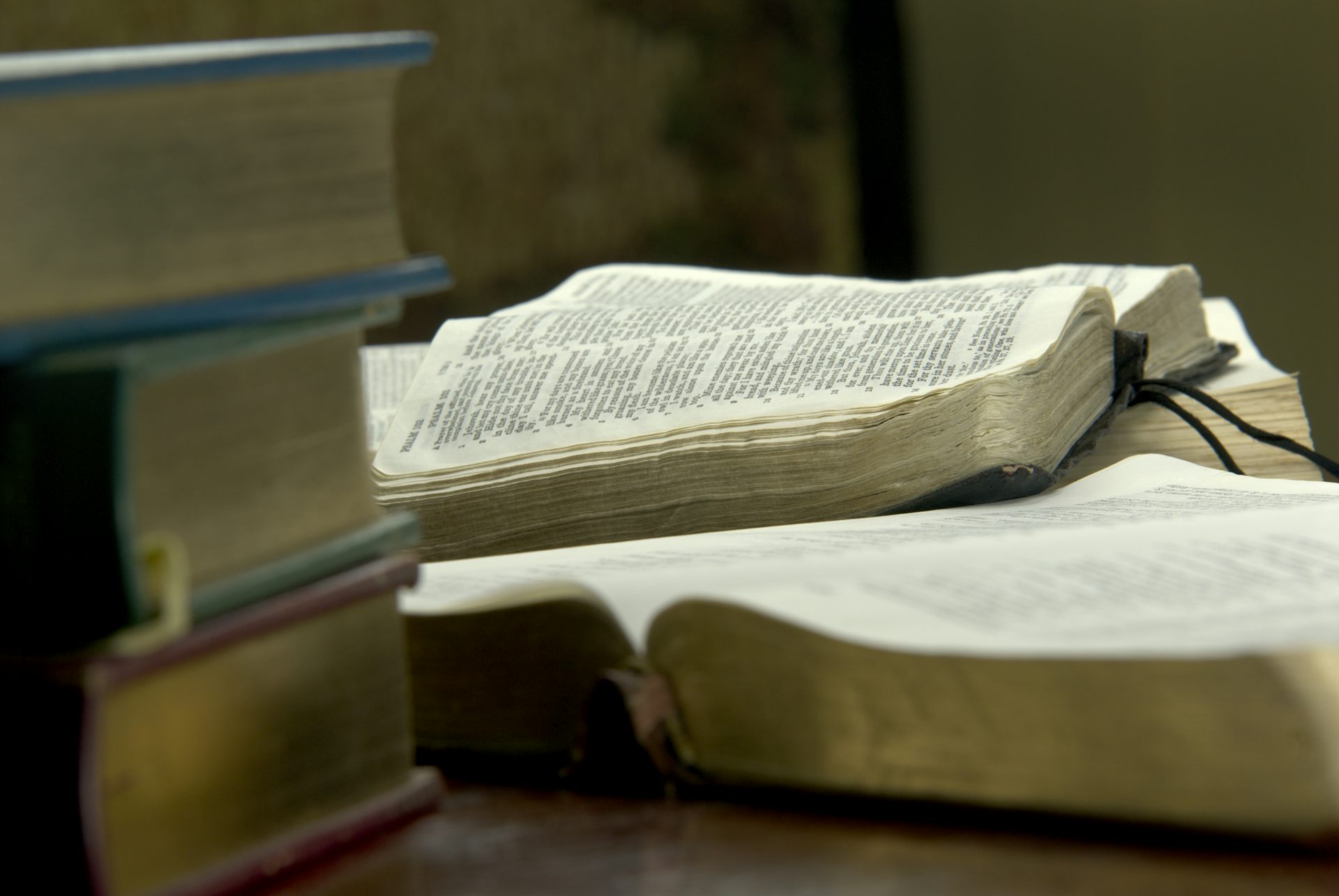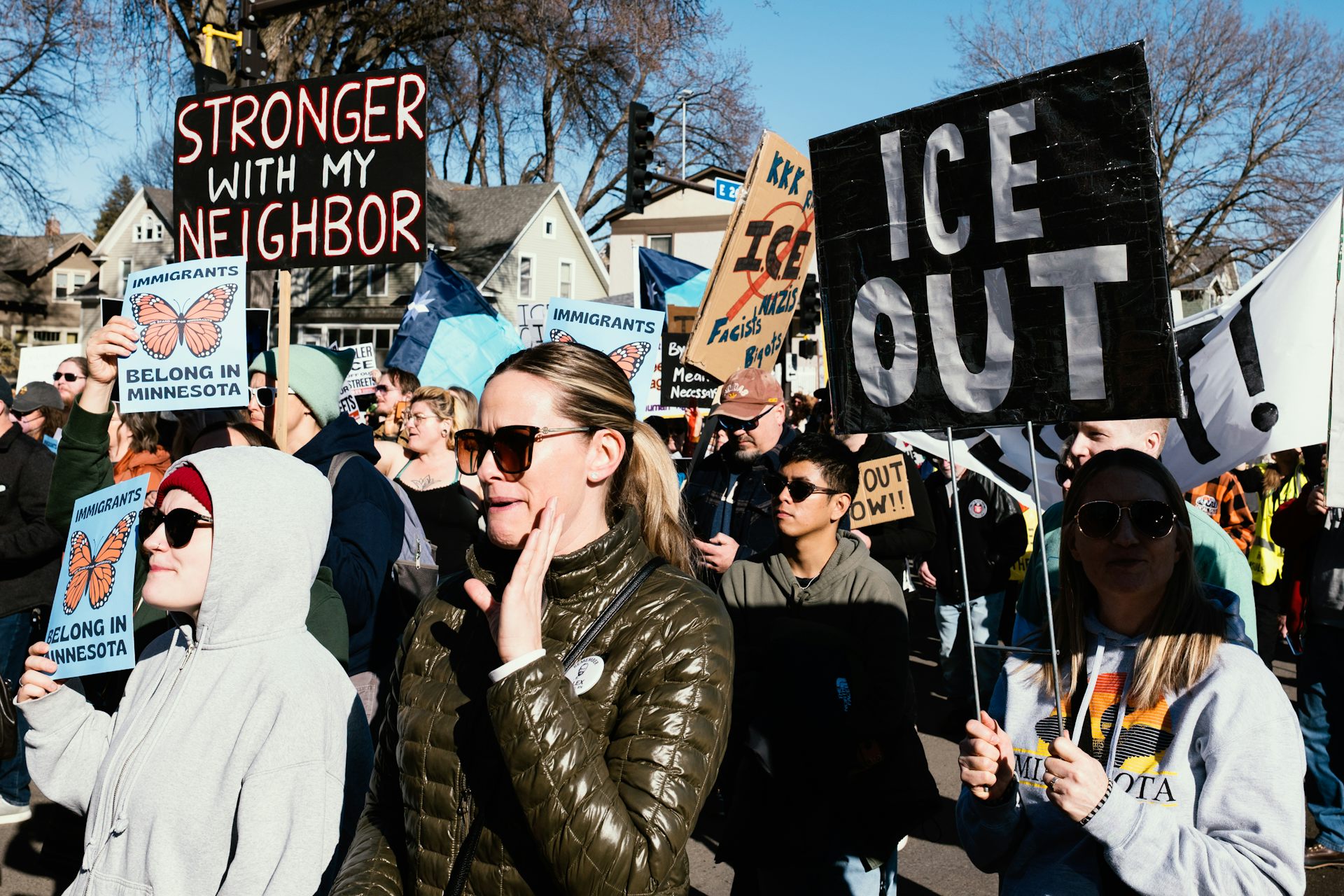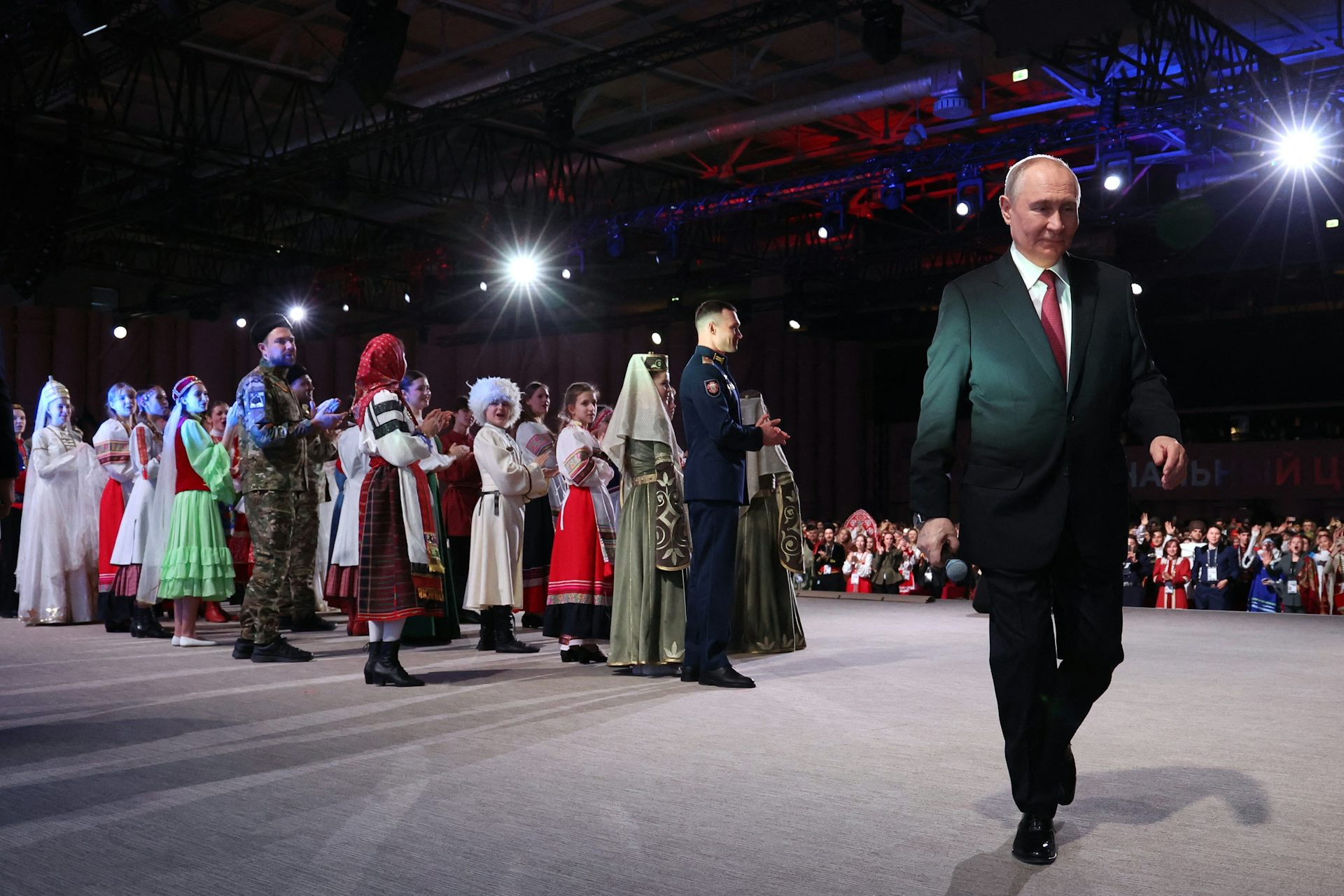Mubarak's lasting legacy on Egypt's Coptic Christians
Mubarak used his relationship with the Copts to receive support for his rule, but he did not build institutions that could guarantee Christians constitutional rights.
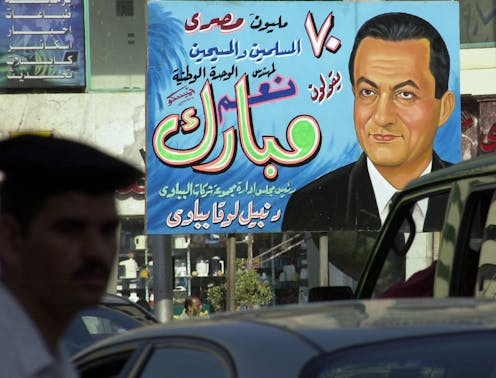
The rule of Egypt’s former leader Hosni Mubarak, who died in February at age 91, will be remembered by many for its repressive tactics and the unprecedented Arab Spring protests that led to the strongman’s ouster in 2011.
But Mubarak’s legacy is more complicated than that. Egypt’s Coptic Orthodox Christian Church had a friendly relationship with Mubarak. At the height of the Arab Spring in February 2011, Pope Shenouda III, the Coptic Church’s head at the time, ordered Christians to stay home rather than to join those protesting the regime.
In my book “Alien Citizens,” I show how those in political authority use minorities for their own interests. Mubarak used his relationship with the Copts to bolster support for his rule while failing to put in place lasting legal safeguards for Christians.
This strategy did not change after Mubarak’s ouster from office.
The Copts in Egypt
Egypt’s Copts, the largest Christian community in the Middle East and one of the oldest Christian communities in the world, constitute about 10% of the country’s total population of 95 million.
Since 1952, when Egypt became a republic following a military coup, the church’s relationship with the state has not always been smooth. Christians in Egypt have faced discrimination in multiple forms.
Until recently, Christians required permission from Egypt’s president to build a church. A ruling on whether one can be constructed took into account the number of Christians living in a neighborhood and the proximity of the proposed church from nearby mosques.
The relationship between Coptic popes and presidents influenced policy on Egypt’s Christians. The rules on church construction were largely a result of the souring relations between Pope Shenouda III and Anwar Sadat, who ruled Egypt between 1970 and 1981 – just before Mubarak.
The pope spoke against Sadat’s more tolerant stance toward the Muslim Brotherhood, Egypt’s Islamic revivalist movement that was repressed under Sadat’s predecessor, Jamal Abdel Nasser.
In 1981, Sadat accused Pope Shenouda III of “fomenting sectarian trouble between Copts and Muslims.” He also rescinded a previous presidential decree that recognized Pope Shenouda III as the leader of the Coptic Orthodox Church and put him under house arrest.
Mubarak released Pope Shenouda III and gave him more access to the corridors of power. But, in return, the pope had to pledge his support to Mubarak’s regime.
A complicated relationship
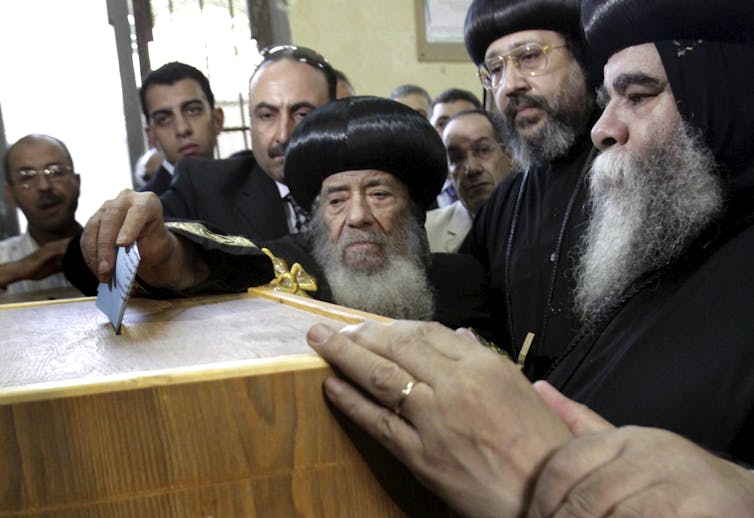
Under Mubarak, the Coptic Orthodox Church gained a privileged position and became the main interlocutor for state’s relations with Christians.
However, the condition of Christians did not necessarily improve under the Mubarak-Shenouda III pact. Political representation of the Copts remained very low. In the 1995 parliamentary elections, for example, Mubarak’s National Democratic Party did not have a single Christian candidate. Even when political representation later improved, the number of Coptic representatives in Parliament never exceeded 3% under Mubarak. Youssef Boutros-Ghali, a Coptic Christian, was among the few to serve in a high-level Cabinet position.
Meanwhile, periodic violence against Christians continued. For example, in January 2000, a skirmish between Copts and Muslims led to the death of 20 Copts in Kosheh, a small village 273 miles south of Cairo.
Mubarak exploited such violence to crack down on his Islamist rivals in the name of fighting against terrorism.
The attacks on Copts reinforced the idea that religious violence was a threat. As anthropologist Talal Asad wrote, the Mubarak regime maintained that the regime “was the only force capable of ensuring religious peace precisely because it suppressed Islamic extremism.”
Pope Shenouda III supported Mubarak all through his rule, including Mubarak’s reelection bid in 2005, which elicited strong popular dissent.
During the Egyptian revolution in January 2011, in urging Copts to stay at home during the revolts, the Coptic Church leaders warned that Mubarak’s removal from power might cause uncertainty for Christians under a new regime.
After the revolution
This coziness to Mubarak put Egypt’s Christians more at risk after the president was ousted from power.
Immediately after Mubarak’s fall, the violence against Copts increased. In 2011, tens of churches were attacked and communal clashes surged. In October 2011, a Christian protest against the demolition of a church for not having a license ended with the killing of 24 Copts by the military.
With Morsi in power, the Muslim Brotherhood pushed for a constitution that would consider Islamic law as the main source of legislation. Many Christians felt marginalized by the move.
Increasing violence
When the military ejected Morsi from power by force in 2013, the Coptic Church supported the move and the subsequent presidency of Abdel-Fattah el-Sissi.
Fearing a return to power of the Muslim Brotherhood, Sissi and the subsequent leader of the Coptic Church, Pope Tawadros II, developed an alliance. In return for the Copts’ support, Sissi would extend more protections to Christians.
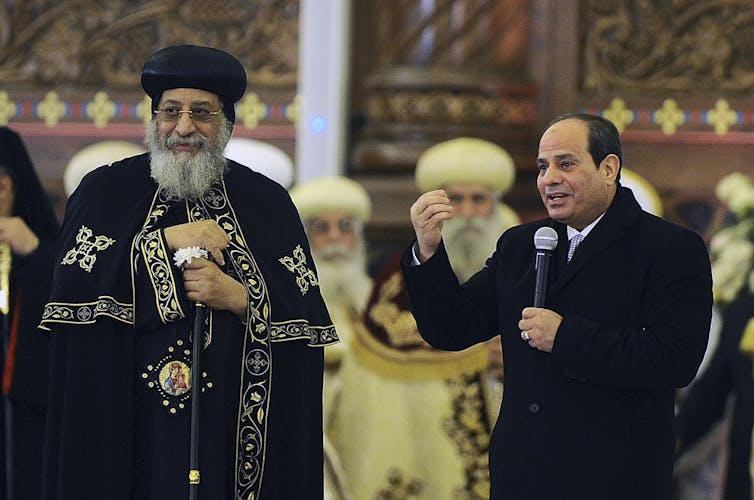
Sissi became the first Egyptian president to attend a Christmas Eve Mass in January 2015. He gave the messages of equality to the Copts. In 2015, the number of Copts in the Parliament increased to 36 out of 596 members.
But violence against Copts continued in the years after 2013. Explosions at two Coptic churches, on Palm Sunday in 2017, left more than 40 dead.
The Muslim Brotherhood leadership condemned the attacks against Copts, but the Sissi regime portrayed the attackers as affiliates of the Islamist group. After the coup in 2013, thousands of people affiliated with the Muslim Brotherhood were killed or imprisoned.
Although the Coptic Orthodox Church continued its amicable relationship with Sissi, many Christians, particularly youth, gradually distanced themselves from the government in response to increasing violence and authoritarianism.
In the end, it might be only the leaders of the Coptic Orthodox Church who benefited from a relationship with Mubarak. Ordinary Christians needed the rule of law for protection which Mubarak and his successors did not provide.
[You’re smart and curious about the world. So are The Conversation’s authors and editors. You can read us daily by subscribing to our newsletter.]
The research related to this piece has been partially funded by the University of Nebraska at Omaha. Opinions are the author's and do not represent the views of the University of Nebraska at Omaha
Read These Next
Will AI accelerate or undermine the way humans have always innovated?
An anthropologist’s new book lays out the formula for human innovation, from stone tools to supercomputers.…
The apocrypha, Christianity’s ‘hidden’ texts, may not be in the Bible – but they have shaped traditi
‘Apocrypha’ means ‘hidden’ in Greek, but it is often used to describe texts that are outside…
Minneapolis united when federal immigration operations surged – reflecting a long tradition of mutua
Minnesotans from all walks of life, including suburban moms, veterans and protest novices, have bucked …



